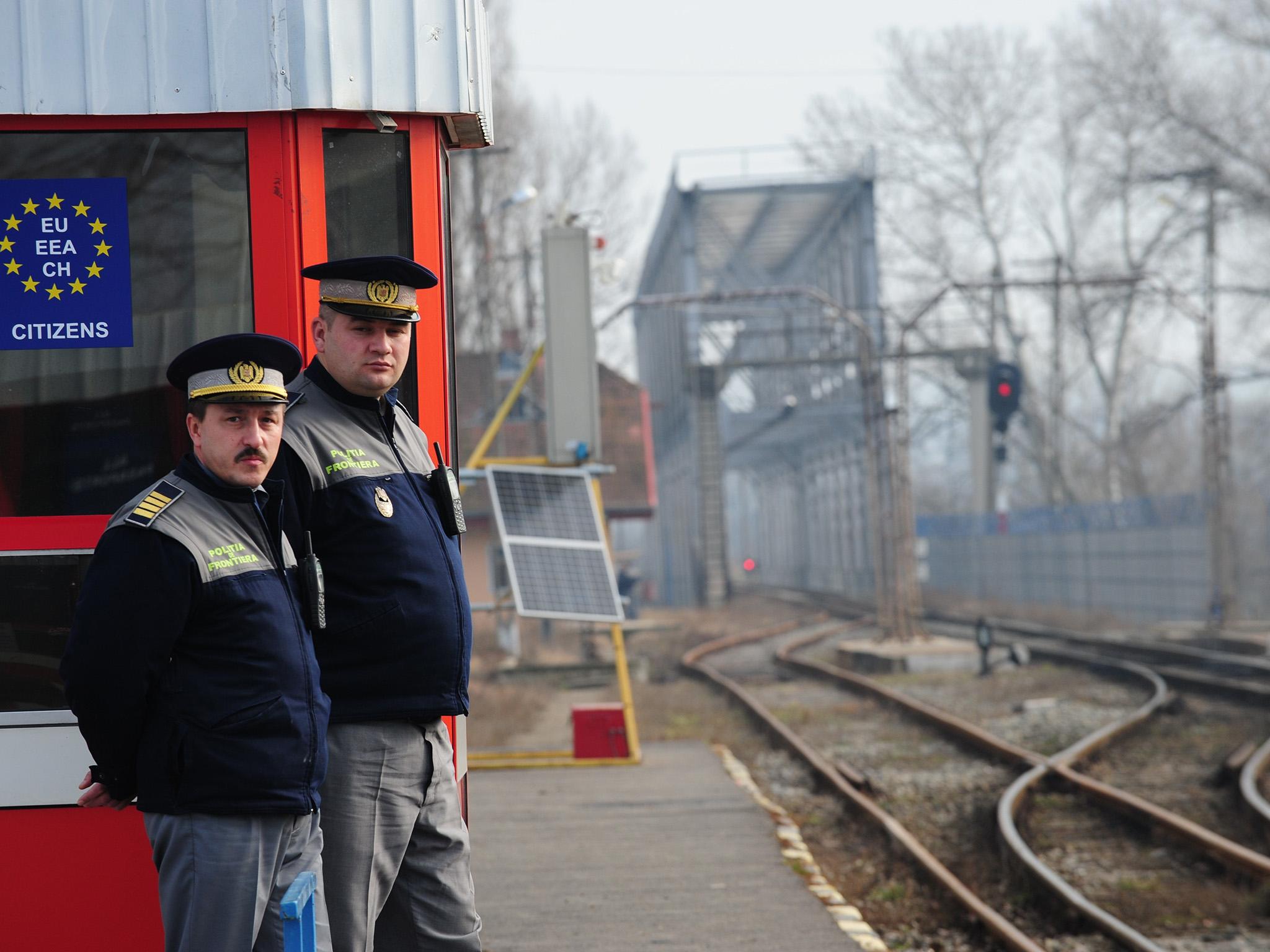Is this the workable Brexit deal no one is talking about?
Currently the UK cannot strike trade deals independently of the EU, but the countries participating in DCFTAs can

Your support helps us to tell the story
From reproductive rights to climate change to Big Tech, The Independent is on the ground when the story is developing. Whether it's investigating the financials of Elon Musk's pro-Trump PAC or producing our latest documentary, 'The A Word', which shines a light on the American women fighting for reproductive rights, we know how important it is to parse out the facts from the messaging.
At such a critical moment in US history, we need reporters on the ground. Your donation allows us to keep sending journalists to speak to both sides of the story.
The Independent is trusted by Americans across the entire political spectrum. And unlike many other quality news outlets, we choose not to lock Americans out of our reporting and analysis with paywalls. We believe quality journalism should be available to everyone, paid for by those who can afford it.
Your support makes all the difference.The blue and yellow flags, the blockades and the water cannons are well-remembered images of Ukraine’s 2013 uprising, but what seems to have escaped common memory is what set it off in the first place.
Though underpinned by long-standing tensions, the initial trigger for the uprising was real fear felt by some Ukrainians that their deal with the EU – the creation of their Deep and Comprehensive Free Trade Area (DCFTA) – would not go through.
While the same level of enthusiasm for such a deal is unlikely to be seen in Britain, the viability of these agreements has led some to consider whether the DCFTA could be a good model for a post-Brexit UK.
Although each of the existing DCFTAs have their unique features, in broad terms the DCFTAs allow participating countries deep access to the EU’s internal market but without Freedom of Movement.
Currently the UK cannot strike trade deals independently of the EU, but the countries participating in DCFTAs can, as evidenced by Georgia’s deal with China.
In evidence recently given to a Lords Select Committee by Michael Emerson, a former UK Ambassador to Russia and lynchpin in creating the DCFTAs, he suggested that these arrangements would be a beneficial and workable option for the UK to pursue.
The EU has agreed to not one, but three of these deals with non-EU countries. Often lambasted for taking years to finalise major trade deals, the EU managed to complete two of the DCFTAs, Georgia’s and Moldova’s, in 18 months. The third, Ukraine’s, was completed in four years, the length due to the huge political unrest that engulfed the country.

The EU has already started talks for such agreements with Armenia, Tunisia and Morocco. Though the latter two have been mooted it seems, Armenia is in the process of agreeing a fairly similar deal, albeit with a different name.
Cynically these agreements could be regarded as a way to extend the EU’s influence to three potential accession states without having to agree to full membership. But the DCFTAs are based on a country recognising its “European choice”. The UK has recognised its European role and the Government is keen to continue to play a role in the continent’s future, though not as a direct member of the EU. So it seems that such a deal could be on the table for the UK.
So what could a DCFTA mean for the UK in practice?
Each country that has a DCFTA effectively has a bespoke deal, known as their own Association Agreement.
Ukraine’s deal grants it internal market treatment for services and for a range of goods, though there are still issues to be ironed out on agricultural products. The other two DCFTAs list goods and service sectors where the EU feels there are approximate standards in each country and are thus able to grant internal market access and treatment for these areas.
Further the DCFTAs share a feature of the major trade deal the EU recently signed with Canada. There is a negative list system for tariff reduction, which means they begin with the aim of being tariff free and then add tariffs where they feel they are necessary.
For UK financial and other services firms, the DCFTAs include Freedom of Establishment of a subsidiary, branch or representative office of a company in any business or service sector, other than weapons. The EU and the representative country also agree to ensure that procedures applied to domestic companies will apply to subsidiaries.
For many, particularly the scientific community, DCFTAs include the opportunity to be involved in EU agencies and programmes, offering some relief for academics worried about funding for research or working on pan-European projects after Brexit.Ukrainian dancers perform in Kiev on the first day of visa-free travel for Ukrainian nationals to the EU

Though some agencies can contain non-EU members already, this represents a significant benefit in that many programmes may not face a cliff-edge scenario after Brexit. Moldova was involved in the EU’s SME support programme, COSME, very soon after signing their Agreement.
There are certain areas, such as arms and the internal Common Foreign and Security Policy, which are unsurprisingly off-limits, but the aim of the DCFTAs is “convergence” with the EU, which means there are very few areas which are not touched by the Agreements.
Where access is not granted currently, there is wording which suggests, should certain conditions be met, these could be open in the future. The aims of these agreements are in the name, they are meant to be forward thinking and comprehensive.
One key indicator of this is that “conditionality” is the watchword for these agreements. Conditionality is essentially a way of placing achievable posts for a country’s legal system to run to meet. Once they have adhered to certain market conditions, i.e. once the country’s codes have approximation with the EU’s legal codes, then the access rights detailed in the Association Agreement are granted.
What is remarkable, given the time it has taken for the EU institutions to undertake other agreements, is that these rights are granted almost instantly through a system called provisional application. Provisional application means that the Agreements enter into force before the treaties have been formally ratified by every Member State of the EU.

This is how Ukraine’s Association Agreement has been able to come into force despite Holland having a referendum which resolved not to ratify the Agreement. The logic behind this is that in the creation of the Association Agreements representatives, MEPs and experts from the Member States would have been consulted and their advice taken on board. Thus the Agreement drawn up will be the most “ratifiable” once it hits the desks of Member State parliamentarians.
Provisional application seems to appeal because it does away with the need to negotiate separate transitional agreements, saving time, energy and money on behalf of lawmakers, companies and just about anybody other than those in the legal profession.
For the UK the roadmap to getting a DCFTA arrangement would be very similar to the route it is currently following. DCFTAs require transposition of the relevant sections of the acquis, mutual market access; national treatment, which is a World Trade Organisation (WTO) way of saying treat they neighbour as you would treat yourself; and incorporation of the relevant WTO rules, which the UK as a WTO member does already.
The extent to which the EU would want to offer a deal designed for states keen on integration, to a state on course to leave, remains to be seen. Although the existing DCFTAs were fashioned for countries set on integration, rather than exiting the bloc, it remains to be seen whether the agreements emerge as a framework for Britain’s own relationship after Brexit.
Join our commenting forum
Join thought-provoking conversations, follow other Independent readers and see their replies
Comments